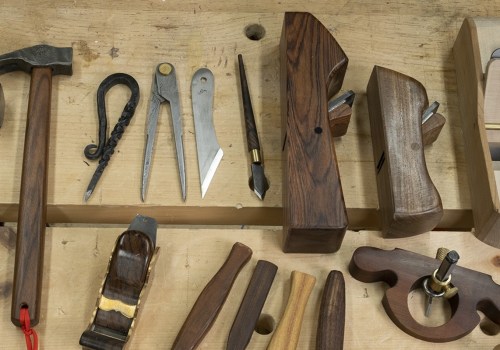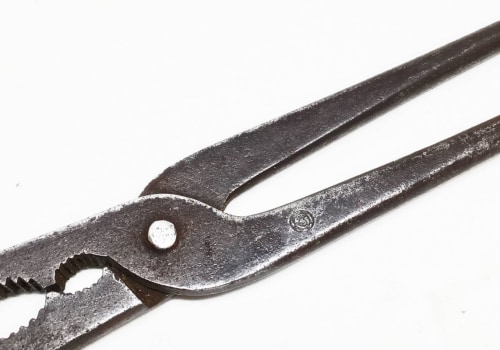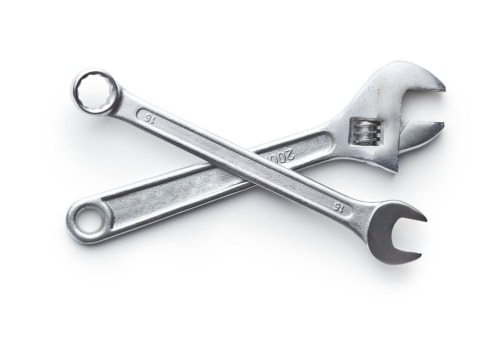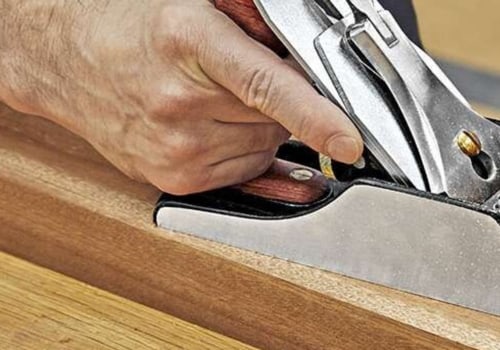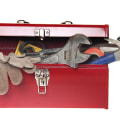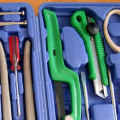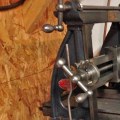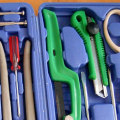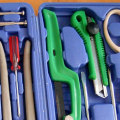Keep tools in a dry place with low humidity, away from clothes dryers, laundries, etc. Store power tools in their original boxes or cases and hang garden tools from the ground. If you use a tool box or drawers, use silica gel packs to absorb moisture or invest in antioxidant drawer liners. Of course, how you store your hand tools will also depend on the type of tools you store.
For example, an artist will need different tools than an operator. No matter what storage system you use, the tools you need should always be nearby. Tools should also be stored in such a way that no one gets hurt. Be sure to also store the appropriate safety equipment so that it is easily accessible with the tool you are using.
Once again, one of the most effective ways to keep a work surface clean is to have ample vertical storage space. Tools hidden in tool boxes and drawers can be forgotten or misplaced. So the more you can visually see on the walls, the better. Most people have at least a few hand tools.
These include hammers, screwdrivers, and pliers, just to name a few, but any tool that doesn't require batteries or that has to be plugged in during operation is considered a hand tool. Hand tools are often the easiest tools to lose. That's why it's so important to keep them organized. How you do it depends on several factors, including the space you have, the number of tools you have and how often you use them.
In most cases, how you store your hand tools will depend on the space you have in your garage or basement. Place all your hand tools in one place, all your power tools in another, and everything you consider a seasonal tool in its own pile. I've seen a lot of tool boxes that can only support panel saws, shorter saws that were more commonly used by furniture manufacturers. It seems that sweat only produces rust when I touch the tools, so the plane of the block, the plane of the shoulder and the straight steel edge show some darkening in the places where I handle them, but other tools don't.
However, just like your hand tools, how you decide to organize them will largely depend on how many you have, how much space you have to store them, and how often you plan to use them. After working in many workshops with a wide variety of arrangements, I have come to the conclusion that an optimal and realistic configuration consists of having all the tools, at most, away from the eyes with a movement of one hand. The BlueCave system is a brand of cabinet systems that give you the advantage of storing your tools in an orderly manner. If you're like most people, you probably have a wide variety of tools stored in various places around the house.
I was very surprised to realize that I had seen a box of this type (almost identical) to the one he had delivered to me recently, which must be very old. Whatever storage system you choose for your useful tools, it's crucial that it gives you enough space to store everything clearly and comfortably while at the same time adapting to your workflow. No matter what their niche is, every practical homeowner has tools that need to be ranked, and there are several smart ways to get the job done. Maybe you have random screwdrivers and hammers stored in the basement, gardening tools such as rakes and hoes in the garage, and power tools stored at the top of the cabinets.
Here you can hang the tools alone or in containers in which to store some screws, nuts and bolts. For example, you can also store brooms, work clothes, or garden tools on hooks or other device holders for the wall. .

